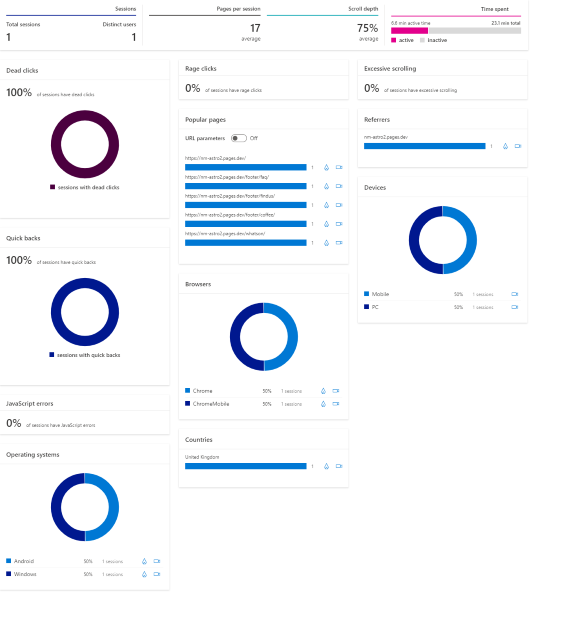Development documentation
Intro
Tech stacks
The current site built using Wordpress (MySQL, PHP, Wordpress and WordPress plugins). It relies on non-trivial javascript routines in addtion to dynamic generation of server side pages.
The new prototype is a statically generated site built using Astro.build with Tailwind.css library for style and layouts.
The current website uses Wordpress and is hosted by a small ISP. It is slow and despite best efforts has a large amount of historic source code and image bloat.
To give the size and speed some numbers:
Chrome Dev Tools Lighthouse - mobile with no network throttling:
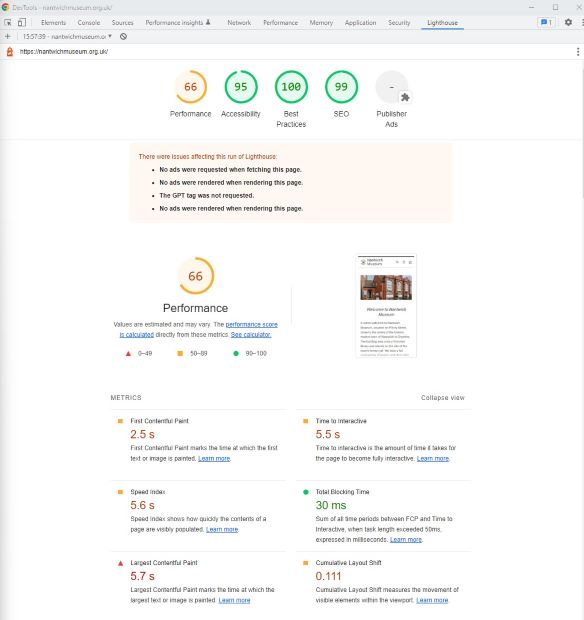
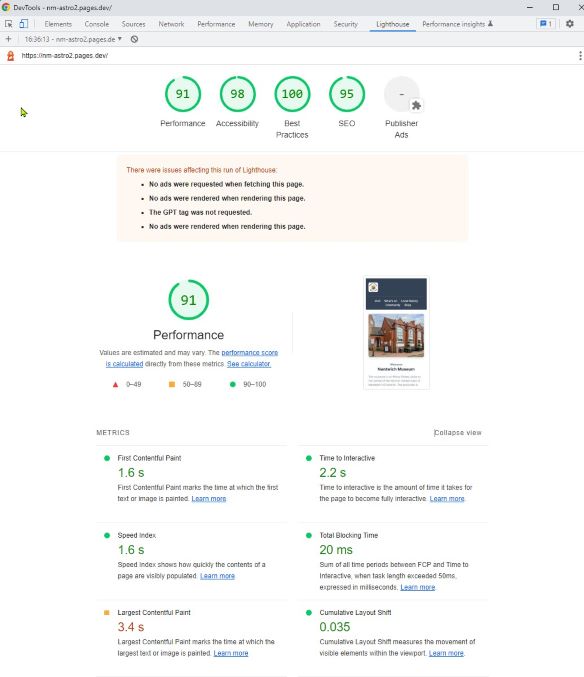
Network calls
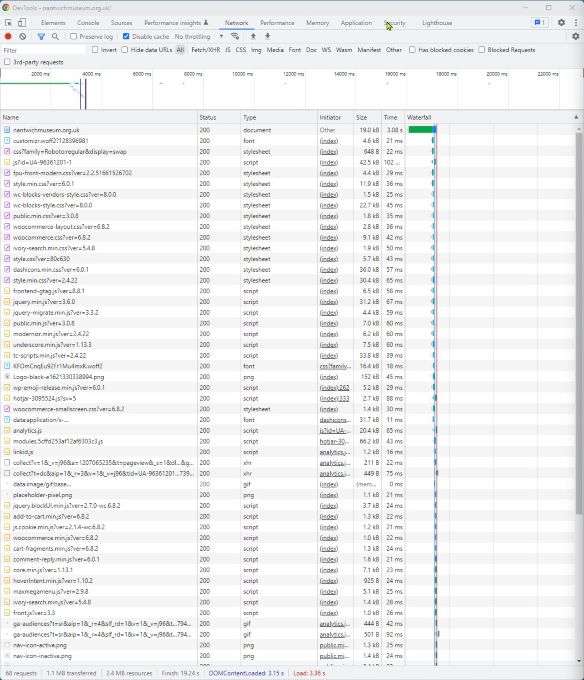
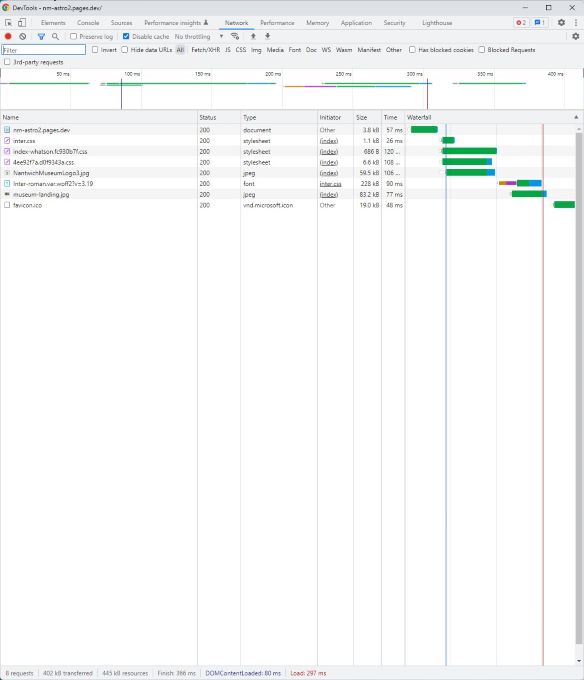
Source size existing Wordpress versus Astro
| Measure | Wordpress | New Astro Static Site |
|---|---|---|
| Content source directory size | 1,060 MB | 14 MB |
| Files count | 10,790 | 328 |
Summary
Revised Astro based static site is far smaller, faster and uses a fraction of the number of network calls the existing site needs. The new site is consistently faster : 1,100-1,500 millisecond load time versus 4,500-7,500 millsecond load time for the existing Wordpress site
Downsides of Astro
- New(ish) whereas Wordpress is mature and well understood product
- Lots of support experience readily available for Wordpress
- Wordpress has good editors and other content creation tools available
Positives for Astro
- Astro is vanilla HTML and CSS - understood by all web developers
- Most of the Museum’s web pages are static and well suited to generation
- Support for Mardown authored pages
All source is hosted on GitHub with automatic builds/deployment to Cloudflare. This means everything backed up automatically and changes propogated worldwide within minutes of publishing to GitHub
Analytics
Need to know number of visitors and which pages are visited. For protype testing Microsoft Clarity implemented (rather than Google Analytics). Cannot detect any change in page load times. Still fast & responsive. Sample screen shot:
